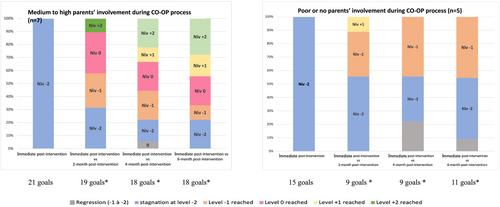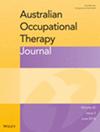Transfer of skills acquired through Cognitive Orientation to daily Occupational Performance (CO-OP) approach in children with executive functions deficits following acquired brain injury
Abstract
Introduction
Children with acquired brain injury (ABI) often have executive function (EF) deficits that affect their ability to carry out activities efficiently. Cognitive Orientation to daily Occupational Performance (CO-OP) is a cognitive approach to problem-solving. It has demonstrated effectiveness in a variety of populations, most recently with children with EF deficits following ABI. One of the challenges of rehabilitation is transferring skills acquired during sessions into everyday life. The literature suggests that CO-OP enables transfer of skills to untrained tasks, but research on transfer following its use with children with ABI is limited. The aims of this study were (1) to determine whether skills acquired during CO-OP transfer to new untrained activities, (2) to study the possible influence of parental involvement in CO-OP on children's attainment of transfer goals, and (3) to determine if the degree of difference between trained and untrained goals is associated with achievement of transfer.
Methods
A quasi-experimental design was used. Eleven children with EF deficits following ABI took part in the study. At the end of CO-OP intervention, children identified three new goals. These ‘transfer’ goals were assessed at baseline (immediately post-intervention) and at 2-, 4- and 6-month, using the Goal Attainment Scale (GAS) and the self- and parent-rated Canadian Occupational Performance Measure (COPM). Children did not receive any specific intervention during this time.
Consumer and Community Involvement
There was no consumer and community involvement.
Results
At 6 months, GAS indicated that 22 of 32 transfer goals had improved by at least one level. COPM showed a significant increase in (1) child perception of performance and satisfaction for 24/31 and 25/31 goals, respectively, and (2) parent perception of performance and satisfaction for 19/29 of goals.
Conclusion
This study showed that CO-OP facilitates transfer of acquired skills to new, untrained activities, even after the end of the intervention.


 求助内容:
求助内容: 应助结果提醒方式:
应助结果提醒方式:


